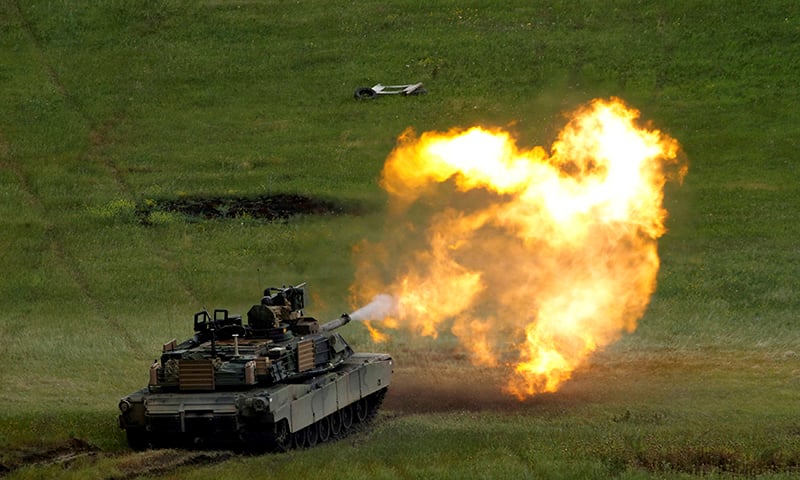Taiwan on Thursday confirmed it is hoping to buy state-of-the-art tanks and portable missiles from the United States in a proposed deal that drew an angry rebuke from China.
Taipei's defence ministry has formally asked for 108 M1A2 Abrams main battle tanks, more than 1,500 Javelin and TOW anti-tank missiles, and 250 shoulder-fired Stinger anti-aircraft missiles, it said in a statement.
The request was proceeding “as normal”, the ministry added.
The US government has given Congress informal notification of its plan to sell the equipment in a deal worth $2 billion, Bloomberg News reported.
Beijing said it had “serious concerns” about the sale.
“We have repeatedly emphasised to the US to fully understand the extremely sensitive and damaging nature of their decision to sell arms to Taiwan, and abide by the One China principle,” foreign ministry spokesman Geng Shuang said at a regular press briefing on Thursday.
Taiwan has been ruled separately since the end of a civil war in 1949 but China still views it as its territory and has vowed to take the island, by force if necessary.
Beijing has significantly stepped up diplomatic and military pressure on Taipei since Beijing-sceptic president Tsai Ing-wen was elected in 2016.
It has staged military exercises near the island, and steadily reduced the already small number of nations that recognise Taiwan.
The United States switched diplomatic recognition from Taiwan to China in 1979, but it has remained its main unofficial ally and is congressionally bound to supply it with arms — a constant niggle in US-China ties.
In recent years Washington has been wary of completing big ticket arms deals with Taiwan, fearful of stoking China's anger.
But President Donald Trump has sought to strengthen ties with Taipei and appeared more willing to sell major weapon systems.
Obsolete weaponry
The US government announced plans last year to sell spare parts worth $330 million to Taiwan for its US-made F-16 fighter jets and C-130 military transport planes, sparking anger from Beijing.
Taipei has also submitted a formal request to Washington for new fighter jets to upgrade its ageing air force but there has been no public response yet from the US.
Taiwan would be massively outgunned in terms of troop numbers and firepower in any war with China and it desperately needs to upgrade much of its equipment.
Its current tank force consists of around 1,000 CM 11 Brave Tiger and M60A3 tanks, technology that is increasingly obsolete.
Abrams tanks and powerful anti-tank and anti-aircraft missiles that can be quickly moved by soldiers in the field would significantly increase Taiwan's ability to destroy Chinese jets and armour in the event of an invasion.
“They would help prevent an invasion, making it difficult for an invading PLA force to establish a beachhead in northern Taiwan,” Bonnie Glaser, an expert on Taiwan and China at the Center for Strategic and International Studies, told AFP.
“I expect the Trump administration to approve this package, as part of a policy of bolstering Taiwan's defenses,” she added.
Drew Thompson, a former Defence Department official now at Singapore's Lee Kuan Yu School of Public Policy, warned China might look to punish any US firms involved in the sale.
The Abrams tank, he noted in a Twitter thread, is made by General Dynamics which also owns Gulfstream Jets. Beijing could seek to retaliate against their private jet business, he warned.
“China implementing unilateral sanctions against companies and practicing economic coercion is increasingly the norm,” he wrote. “Buckle up.”













































